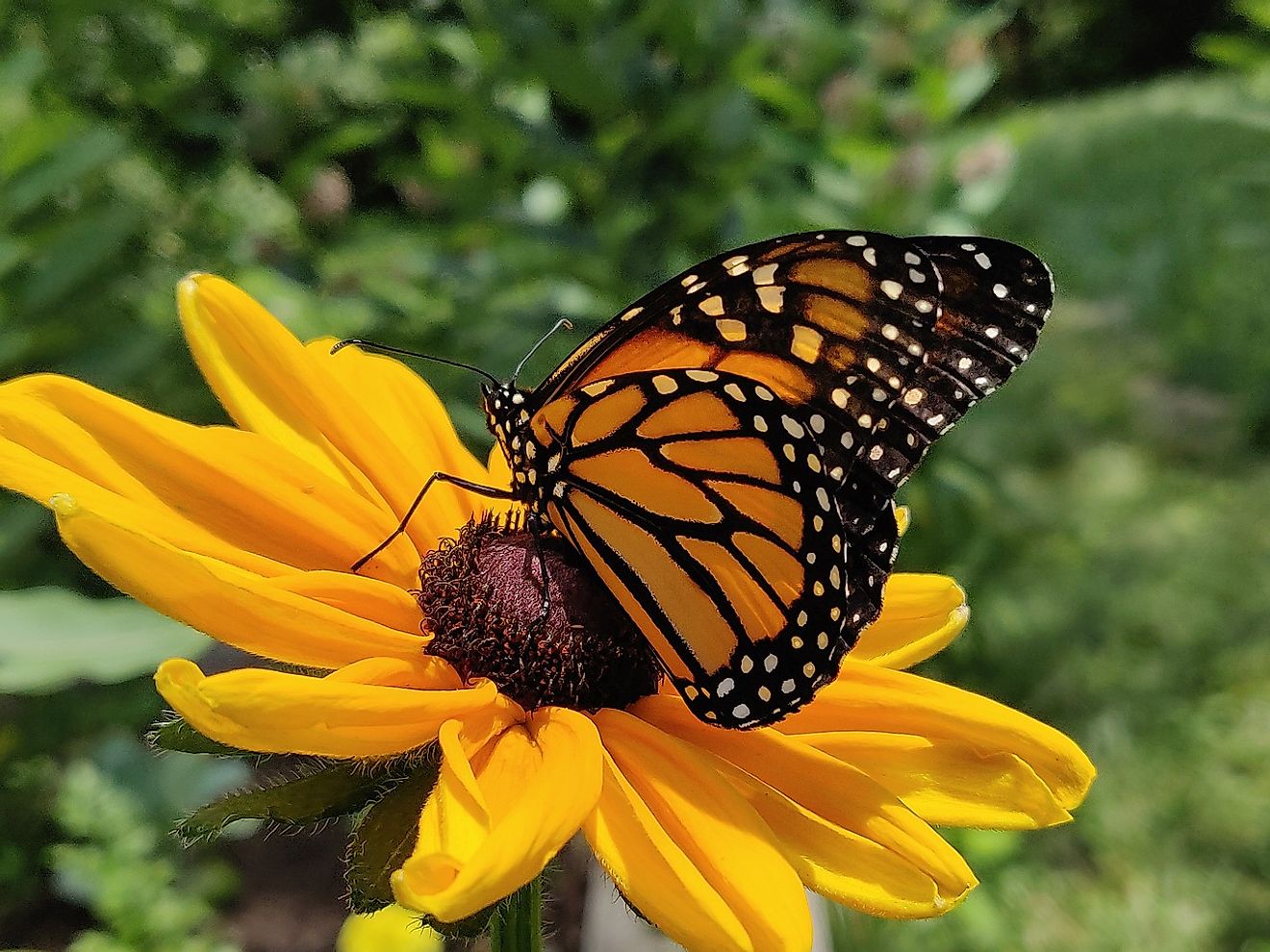10 Unique Butterfly Species That Can Be Found In America

- Some butterflies migrate each year.
- There are over 725 species of butterflies in North America.
- Butterflies begin as a caterpillar and then metamorphosizes into a butterfly.
Butterflies can be found all over the world. According to the North American Butterfly Association, there are about 725 species of butterflies living in the US and Canada.
Some butterflies migrate for thousands of miles each winter, and most drink nectar from flowers, sucking it up through their straw-like tongues. Some eat tree sap and other organic material found in nature, and all are part of a group of insects called lepidopteras. These insects all have wings that are covered in scales, and are ectotherms, meaning they need the heat from their environment to stay warm.
The most common places to find butterflies flitting about are in gardens and parks such as wetlands, meadows, woodlands or shrubs, and also in sunlight fields. Butterfly watching (or butterflying) can be easy to do, if you are patient and willing to venture into nature a bit. This can be a particularly soothing activity that can reveal the breadth of artistry found in nature, with more than enough to inspire.
Here are ten beautiful species of butterfly that can be found in the US.
10. Mangrove Skipper

The beautiful mangrove skipper has streaks of vibrant blue throughout its coloring, giving it a magical air. This butterfly lives in mangrove forests and can be found along the coasts for Florida, with its natural habitat extending down as far south as Argentina, and into the Caribbean. With a wingspan that can spread up to about three inches (7.6cm), you can find it sipping the nectar of mangrove flowers as well as those found on citrus trees, bougainvillea, Spanish needles, and native lantana.
9. Longtailed Skipper

The longtail skipper also has some subtle, attractive blue on its wings, just like the mangrove skipper, making for some striking markings. This butterfly inhabits Florida and Alabama, appearing in Alabama at the beginning of the summer, and can sometimes be seen flying as far north as New England. Intolerant to the cold, they are known to migrate south when winter hits. The longtailed skipper can also be found in Argentina, Texas, Central America, the Indies, and Mexico.
8. Two-Barred Flasher

It is all about beautiful blue colors. The two barred flasher has an upper body that shines in shimmering blue, and it likes to inhabit the land near rivers and streams in tropical forests. Interestingly, it eats not only flower nectar but also bird droppings.
This winged wonder can be found in Argentina, Central America, Texas, and New Mexico.
7. Tiger Swallowtail

The male of this species is yellow and black like a tiny tiger, and the female, often all black. The tiger swallowtail lives on the eastern side of the US, inhabiting the country from top to bottom, and is so popular it has been placed on American stamps. These butterflies are known to eat the nectar of flowers and to also drink minerals and water from mud. Be careful where you step-it can be resting down low.
6. Gossamer-Winged Butterfly

These butterflies form a family with three subgroups: the coppers, the blues, and the hairstreaks. The hairstreaks are the most common type in North America, most often found in warmer, tropical and subtropical climates. These butterflies are colorful with silver, blue, green, orange and brown coloring, and form the second-largest family of butterflies in the world, with over 6,000 species around the globe.
5. Monarch

The monarch butterfly is often associated with milkweed as its larvae eats only that. Once it turns into a butterfly, however, the monarch consumes many types of nectar from hemp to coneflowers, lilac, thistles and more.
Every year, monarchs migrate from Canada and the northern US down to more southern states such as California and Florida, and into sanctuaries located in Mexico. Their brightly colored wings are a form of protection against predators, telling them they taste bad and could potentially be poisonous. Monarchs, like many other butterflies, are important for pollinating our plants. As such, they are a focus in many conservation efforts, as their numbers have been declining due to human development.
4. American Painted Lady

The beautiful painted lady looks a bit like a monarch in coloring, but has a different pattern, without as much black. In addition to living in North America, it can also be found fluttering in Europe, Asia, Africa, and Australia, and more specifically in Colombia, the Bahamas, Greater Antilles, the Canary Islands, and Hawaii. It is known to migrate, and prefers spending time in open deciduous woodlands, as well as meadows and city parks.
3. White Admiral

Spotted with white on a black or brown background, the white admiral can often be found perched a few feet above the ground in a tree or shrub like a poplar or cottonwood. It likes mixed evergreen and broadleaf deciduous forests, and eats a variety of things including dung, and nectar from small white flowers.
2. Hairstreaks

Hairstreak butterflies come in a variety of types, but most are gray with brown, orange, white or black markings on their wings. They can be found in many parts of North America, from north to south. This butterfly loves flowers and fruits, sipping on the nectar of dogbane, milkweed, winter cress, goldenrod and other plants. They often live in non forested, weedy areas, as well as woodlands that are abundant in milkweed and sweet clovers.
1. Spring Azure

Delicate and light, the spring azure butterfly can be found as far north as Alaska, and as far south as the mountains of Colombia. It inhabits flowering shrubs in woodlands, laying eggs on flower buds. A metallic or dusty blue coloring covers its wings, and females are known to fly high into trees, whereas the males can dip down into mud puddles as well as damp ground in ditches and around streams.











